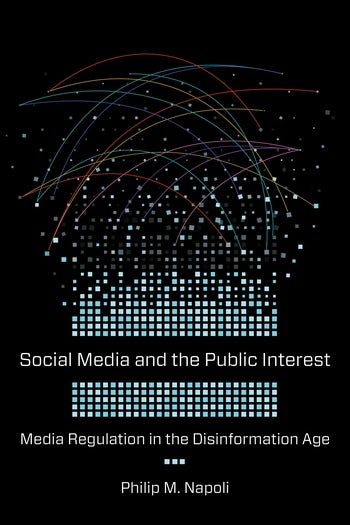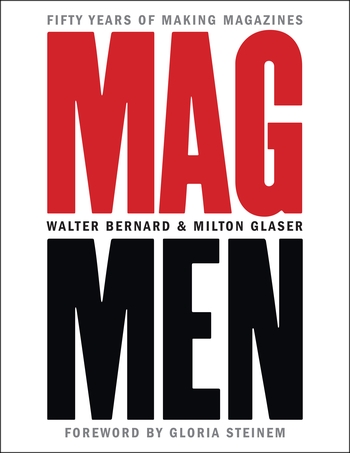Interview with Dean Starkman, author of "The Watchdog That Didn't Bark"
“Journalism can be the antidote to corruption…. It gives the public a fighting chance to understand complex problems when powerful institutions betray their trust and act against the public interest. It can be a clarifying force, without which democracy in a complex age just can’t work.”—Dean Starkman
The following is an interview with Dean Starkman, author of The Watchdog That Didn’t Bark: The Financial Crisis and the Disappearance of Investigative Journalism
Question: Why did you write this book?
Dean Starkman: The short answer is, the financial crisis. Among business reporters, there were basically two broad responses among to the crisis: one group felt that it was a terrible catastrophe and should not be allowed to happen again. The other felt that it was more than that: just unacceptable, beyond the pale. I fall into the latter camp. Really, everyone understands that this was an epic event. But too few of my colleagues, I fear, have really internalized the dimensions of the disaster, the breadth of the corruption, the completeness of the regulatory collapse. This was one of those once-a-century moments when the system cracks open and allowed us all a long look inside and it’s important that this moment not be lost. For me, it all adds up to a story that needs probing from all angles, now and for many years to come. The fact that this disaster was entirely man-made, and occurred on the most high-profile of business-press beats—finance—made scrutiny of the media’s role all the more urgent from my point of view.
Q: But why you?
DS: Besides my journalistic credentials, which can be found here, it was and is actually my job to review and write about business news. I started running the Columbia Journalism Review’s business desk, The Audit, in the spring of 2007—an innocent time in retrospect. As many recall, the debt markets began cracking open not long after that and soon it dawned on us that the U.S. financial system—the envy of the world, powerful beyond imagination, festooned with brand names, blessed by armies of lawyers, accountants, raters, regulators, the crème of our elite educational system—might be a mirage. The crisis had a big impact on my worldview. In essence, it confirmed it.
Q: How so?
DS: In two ways. I spent the first 15 years or so of my career as an investigative reporter at regional papers, then made the transition to being a business reporter at The Wall Street Journal. I always felt an investigative reporter was something of a mini-expert on subcultures—of the police department, the court system, the state house, etc.—whose job it was to learn its mores and idioms, to figure out whether the culture was healthy or not, and to report back to the wider world on how things were going there. When I arrived at the paper, I didn’t know exactly what to expect but it soon became apparent that I had joined a different journalism subculture from the one I had known at regional papers. The Journal was unique in many ways, but it was also certainly part of, if not, the leader of, this business-press subculture, which had its own particular view of what a “story” was—that is, what got into the paper, what we today call “content.”
Admittedly, I wasn’t hired as an investigative reporter. Even so, the boundaries—invisible and unspoken yet real enough—struck me as arbitrary and, to my tastes, narrow. Also, they were fungible. They moved over time. In my view, they narrowed. In any case, coming from outside the culture, I spent a lot of time trying to decode it—where did these ideas about business news come from, and how did we decide these were the right ones—and part of that decoding formed the basis for this book.
Q: And the second way?
DS: The second way involves the idea of corruption. I cringe in way to use that word because it has a shrill tenor and yet I saw enough of it in Rhode Island to understand that it actually does happen, at the highest levels, and that its effects are immensely damaging. Unlike the muckrakers, I’m not sure it’s about good or evil on the part of individuals, although there’s that. But normally all it involves is power imbalance or perverse incentives, or both, leading a state where normal regulation, oversight, and law enforcement are subsumed. A great reporter and friend, John Sullivan, had a theory that 10 percent of the people can always be counted on to do the right thing, and 10 percent will always do the wrong thing, but 80 percent will go with the flow. That’s how corruption happens, and how it can become systemic, as it did in the mortgage industry.
The sense that the deck is stacked, that contracts are rigged, or that tax authorities or police act at the behest of a corrupt mayor, undermines the public’s faith in the system itself. Corruption actually threatens democracy. And it was clear to me at the time, just as it was clear to some of the journalists profiled in Watchdog, that the financial system had crossed a line from competition to recklessness and into corruption.
The crisis confirmed that view and reinforced the dangers of corruption to markets and to democracy itself. Clearly, ours was badly shaken, and the subsequent effects in Europe drive the point home even further.
Q: What’s all that got to do with journalism?
DS: Journalism can be the antidote to corruption. It certainly has been in the past, as I demonstrate in Watchdog. But even if it isn’t, it gives the public a fighting chance to understand complex problems when powerful institutions betray their trust and act against the public interest. It can be a clarifying force, without which democracy in a complex age just can’t work. If that sounds like I’m waving a flag with big “J” on it, well, so be it. The great Walter Lippmann despaired of democracy working in a far-flung industrial power and believed elites should be left alone to solve complex problems. I think we’ve learned that doesn’t work. So this is what we’re left with.




